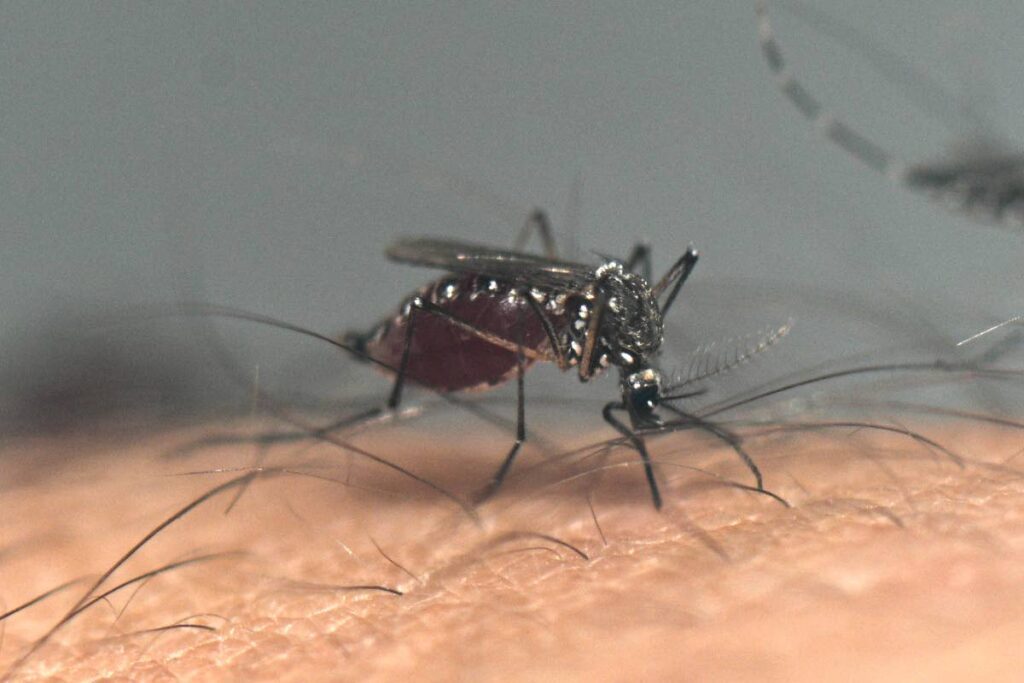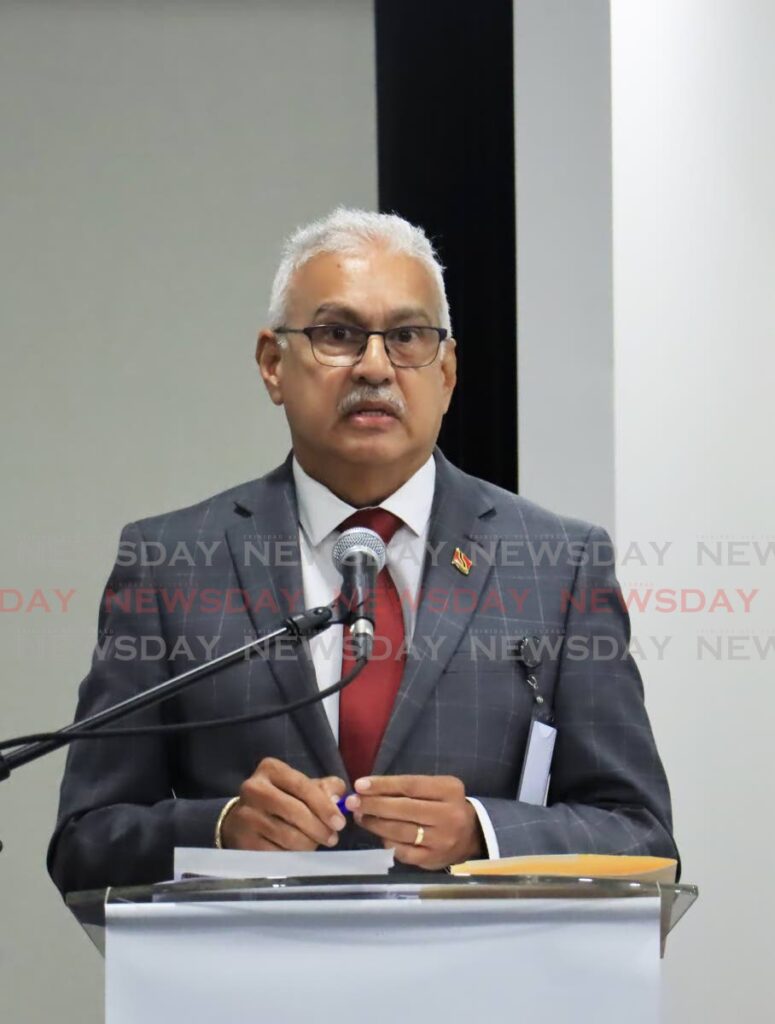Deyalsingh: 1 dead, 126 confirmed infections – Dengue alert

HEALTH MINISTER Terrence Deyalsingh has revealed that a resident of South Trinidad died recently from dengue fever – the country's first confirmed fatality from the virus since 2017. He also revealed that there have been 126 lab-confirmed cases of the disease so far this year in TT.
As of April 30, 7.6 million cases of dengue have been reported globally, with 3,000 deaths, according to the World Health Organization (WHO).
Latin America and the Caribbean reported 9.3 million cases of dengue so far this year, twice the number of cases reported in all of 2023, according to the Pan American Health Organization (PAHO).
Deyalsingh made these revelations during an interview with i95 FM radio station on June 20. For reasons of patient confidentiality, the minister did not disclose any further details on the fatality, saying, "We have to protect the family's right to privacy, to let them mourn and come to terms with this."
Speaking on TV6's Morning Edition talk show on Thursday, Chief Public Health Inspector Dr Mark Dookeran said the Ministry of Health is going to “get tougher” on delinquent households in the fight against the spread of dengue.
“We have recognised that our education efforts are no longer enough and we are not getting the efforts we desire.
“Through the office of the public health inspectorate, we are going to inspect homes, and if we find things that should not be, we will be serving notices and laying charges in court for people found to be delinquent in cleaning around their homes.
“Upon summary conviction,” Dookeran said, “people can be charged up to $3,500 or six months' imprisonment.”
Dookeran said the ministry intends to “break the chain of transmission” by using ultra-low volume (ULV) spraying once a case is detected. ULV spraying is done by a truck-mounted device which can apply insecticide to large outdoor spaces.
This, he said, is usually done early in the morning, as the Aedes aegypti mosquito generally bites between dusk and dawn.
“It doesn’t put our workers at risk when they go in to treat the homes and can take out the infected adult mosquitoes.”
Once ULV spraying is completed, Dookeran said inspectors will visit the home of the affected resident to conduct perifocal work.
“What this means is that we go into the home to identify and inspect both existing and potential breeding sites.”
Dookeran said sites of interest include overgrown, bushy areas and stagnant water.
“Three of the four stages of a mosquitoes’ life cycle are spent in water. At any given time, thousands of larvae can be in stagnant water.
“It is much easier to kill that thousand larvae by knocking over a container, as opposed to going around a community with a ULV machine to spray and using up all of our resources.”
Dookeran added that the chemicals used to fumigate can have long-term effects on a person if spraying is done constantly.
“While the doses we use are safe, if people are constantly inhaling these chemicals, it isn’t good for them.”

Dookeran said the transmission of dengue is not similar to covid.
“You must be bitten by an infected mosquito to contract dengue.”
Similarly, Dookeran said an uninfected mosquito can become carriers of the virus.
“All an uninfected mosquito needs is to come into contact with someone who has the virus by way of feeding on their blood.
“Once this blood is ingested, the virus replicates in the mosquito and it becomes a carrier.
He urged the population to take precautions when spraying is being done.
“Before it happens, the public is informed of the date and time we’ll be spraying and the precautions they can take.”
He advised that while the chemicals are not sufficient to cause harm to humans, it can affect smaller animals like fish and birds.
Cases rising
Deyalsingh said there has been a global and regional increase in the number of dengue cases.
He said this can be attributed to territorial expansion of the Aedes aegypti mosquito, its main vector, which has expanded its range to areas where it was not present before owing to factors such as El Niño and climate change.
“Because of changes like El Niño and La Niña, this means the mosquito population is reproducing faster.”
He said on the global map, the regions being hit hardest by dengue are the Americas, and this was due to global warming.
Drawing on the example of the US, Deyalsingh said there are now states being affected by dengue.
“Those areas were temperate but with global warming, those states are now experiencing tropical climate conditions and are having dengue cases where there weren’t any before.”
He said in Trinidad, three districts are of concern: Victoria, St Patrick and Caroni.
“Those are the counties that are contributing to the vast majority of the 126 dengue cases.”
He said while TT’s infection rates are – for now – “relatively low,” the fatality was of concern and alerts the ministry to the fact that it must do all it can to prevent an outbreak.
Deyalsingh said while he has engaged the Ministry of Local Government for assistance, he is calling on the population to be responsible and do its part to help. He urged the population to not see spraying as the “end-all-be-all.”
“Spraying is part of a multi-pronged co-ordinated approach. While the ministry will continue its efforts on educating the public and co-ordinating fumigation of different areas, the real action is in source-reduction.”
Deyalsingh said the ministry has not amped up its spraying efforts because new chemicals to eradicate mosquitoes have not been developed in 30 years.
“If we spray more often, the mosquitoes develop a resistance and then we will have a bigger problem.”
Deyalsingh said anywhere that has still, clear and stagnant water will become a breeding ground.
“Clean your gutterings, flowerpots, drains and vases inside your houses. All of these commonsense approaches will help,” he urged.
Deyalsingh admitted to being “horrified” when he discovered potential breeding sites in his own home.
“I did an audit of my own home and found about three sites of concern. The major one was a bird bath, which I moved out."
Dengue facts
Dengue is a viral infection caused by the bite of an infected female Aedes aegypti mosquito, primarily found in tropical and subtropical regions, according to the World Health Organization (WHO). It is sometimes referred to as "break-bone fever" because of the associated symptom of intense pain, especially in the joints.
Other symptoms include high fever, headache, nausea and a rash.
In severe cases, haemorrhagic fever causes shock, internal bleeding and death.
There is no cure for dengue fever. In mild cases, treatment is focused on treating pain symptoms. Severe cases require hospitalisation. Treatment of acute dengue is supportive and includes giving fluid either by mouth or intravenously.
Most cases of dengue fever can be treated at home with pain medicine. Acetaminophen (paracetamol) is often used to control pain.
Non-steroidal anti-inflammatory drugs like ibuprofen and aspirin should be avoided, as they increase the risk of bleeding.
According to online research site Wikipedia, there are two types of approved vaccines which are commercially available.
Dengvaxia became available in 2016 but is only recommended to prevent reinfection in individuals who have been previously infected.
The second vaccine, Qdenga, became available in 2022 and is suitable for adults, adolescents and children from four years of age.
Apart from dengue fever, other mosquito-borne diseases include the Zika virus, West Nile virus, Chikungunya, malaria and yellow fever.

Comments
"Deyalsingh: 1 dead, 126 confirmed infections – Dengue alert"